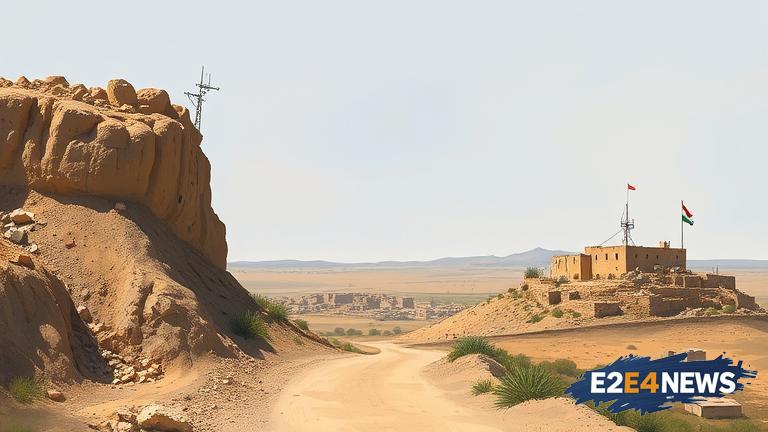The establishment of new outposts by Israeli settlers in the southern West Bank has sparked widespread condemnation and concern among the international community. The outposts, which are considered illegal under international law, have been set up in the vicinity of existing settlements, further entrenching the Israeli presence in the occupied territory. The move is seen as a deliberate attempt to expand Israeli control over the West Bank, undermining the prospects for a two-state solution to the Israeli-Palestinian conflict. The outposts are reportedly located in areas with significant strategic importance, providing settlers with access to vital resources such as water and land. The Israeli government has been criticized for its failure to prevent the establishment of these outposts, with many accusing it of tacitly supporting the settlers’ actions. The international community has long considered Israeli settlements in the West Bank to be a major obstacle to peace, and the establishment of new outposts is likely to exacerbate the situation. The Palestinian Authority has denounced the move, calling it a ‘flagrant violation’ of international law and a ‘serious escalation’ of the conflict. The United States, the European Union, and other major powers have also expressed concern over the development, urging Israel to refrain from taking any actions that could undermine the peace process. Despite these warnings, Israeli settlers continue to expand their presence in the West Bank, with many viewing the outposts as a means of asserting their claim to the land. The outposts are often established on privately owned Palestinian land, leading to the displacement of local residents and the destruction of their livelihoods. The Israeli military has been accused of providing protection to the settlers, allowing them to carry out their activities with impunity. The establishment of new outposts has also led to an increase in violence against Palestinian civilians, with many reporting incidents of harassment and intimidation. The situation on the ground is increasingly volatile, with tensions between Israeli settlers and Palestinian residents reaching a boiling point. The international community is calling for urgent action to address the situation, with many advocating for the dismantling of the outposts and the removal of Israeli settlers from the West Bank. However, the Israeli government has shown little willingness to comply, preferring instead to maintain its support for the settlers. As the situation continues to deteriorate, there are fears that the conflict could escalate into full-scale violence, with potentially disastrous consequences for the region. The establishment of new outposts is a clear indication that the Israeli government is not committed to finding a peaceful solution to the conflict, and that it is instead pursuing a policy of annexation and expansion. The international community must take immediate action to address this situation, including imposing sanctions on Israel and providing support to the Palestinian people. The fate of the two-state solution hangs in the balance, and it is imperative that the international community acts quickly to prevent the conflict from escalating further. The Israeli government must be held accountable for its actions, and the settlers must be prevented from continuing their illegal activities. The Palestinian people have the right to self-determination and statehood, and it is the responsibility of the international community to ensure that this right is respected. The situation in the West Bank is a stark reminder of the need for a just and lasting peace in the Middle East, and it is imperative that the international community works towards achieving this goal.
